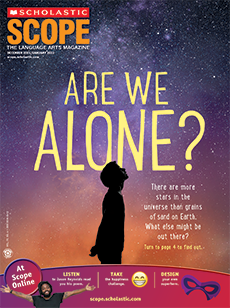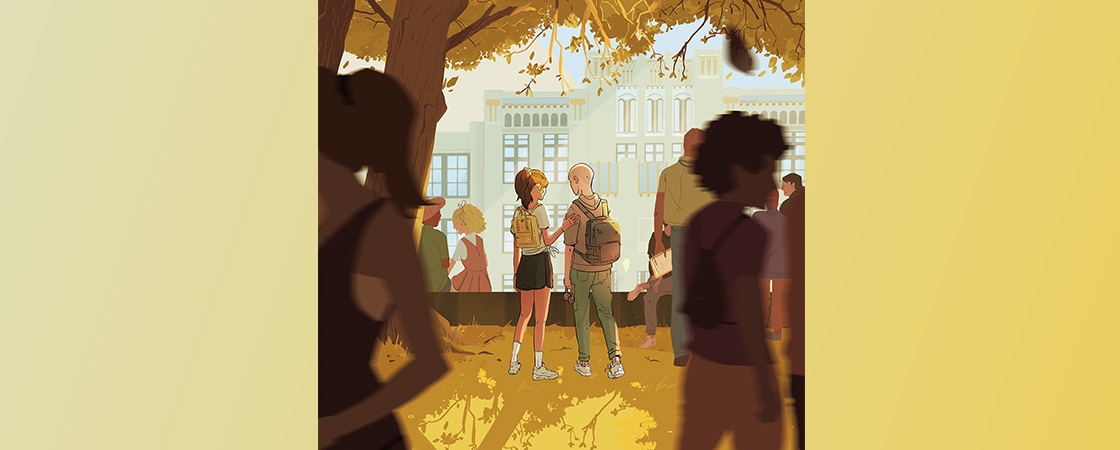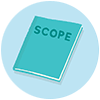We walked into the playground, where most of the kids already were because the buses get there by 8:05, and it was now quarter past. I could hear Calvin beside me trying to take deep, cleansing breaths like his therapist had suggested. By habit, my eyes scanned the playground for Mackey, even though of course I wasn’t going to go off and leave Calvin alone. Not today.
Over by the far hoop, my eye stopped on someone, and it took me a second to realize why—the kid had a bald head. Weird. Maybe there was somebody else going through chemo and I didn’t know about it. Guess I’d been too wrapped up in my own family’s pain to notice, or even to remember, that we didn’t invent this—this ache, this tragedy. It’s so easy to feel sorry for myself, to sink into the feeling that we’re the only ones who ever got dealt an unlucky hand.
We were heading in that direction, but I purposely looked away. That kid didn’t need people staring at him either.
“Calvin!” I heard Mackey bellow. “Yo, Cal!”
I had to smile, just hearing his voice. The guy has a set of lungs, for sure. Calvin and I looked around for him and stopped dead in our tracks when we saw what was coming at us.
It was Mackey, though it took me a second to figure that out. His grin gave him away. He was waving, grinning, flanked by six of his buddies from the soccer team. They were heading straight toward us, with their long, loping, soccer-boy swaggers, shoulder to shoulder, covering the distance between us fast.
And here’s the thing: They were bald.
I don’t mean crew cuts. All seven boys had completely shaved their heads. They surrounded us.
“Hey,” these bald, barely recognizable boys I’ve known half my life said to my brother. “Hey, Cal,” and “Hi,” and “What’s up?”
Calvin didn’t say anything. His mouth hung open a little, then curved into a small smile.
“What do you say we bust outta here?” Mackey asked him. “Go have some fun, shoot some pool, make some noise?”
Calvin’s face tensed, so I said, “Mackey . . .”
“All right, fine, let’s take over the school then. Right, guys?”
“Yeah,” a few of them grunted.
“Yeah,” said Calvin too.
“Let’s DO this!” Mackey yelled and slung his big arm over Calvin’s narrow shoulders. The pack of bald boys turned and strode toward the front door of school together. I couldn’t even see Calvin squashed in among them. I couldn’t move. I just watched them go.




